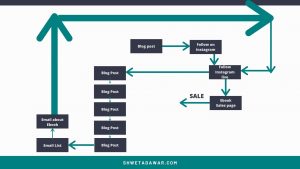— May 17, 2018
You’re already painfully aware that you need amazing leadership in your company. After all, with Baby Boomers heading into retirement in droves(about 10,000 a day), you are keenly attuned to the fact that leadership impacts succession planning, growth, retention and so much more. But with the changing shifts in the workforce and accelerating demands on everyone’s time, how do you develop leaders from employees?
Leadership development doesn’t happen day one.
The first step is admitting you have a leadership hole to fill. But the very next step is to understand that it won’t happen overnight. Like any other program or process, it’s imperative to start with a plan and a timeline, so you can set expectations with your employees and yourself.
Leadership development doesn’t happen in a vacuum.
By creating a duplicatable process with reasonable expectations, you give your employees a roadmap to see their own career progression and other managers and leaders a process they can build on or use in their own teams and departments. Here are some questions to get you started:
Identify a short-term goal for the employee or employees you want to coach. Consider where you’d like them to be in a year to 18 months. Is their role expanded or entirely different? Will they work or coach others? Are there skills needed they don’t currently have?
Move to long-term thinking about the plan. Now move past that point to 2–4 years away. Where is this employee now? How has the company changed? This is a good question to bring your employee in on, as well as higher level stakeholders in the organization. Do they have a crucial need or a product roadmap that might help you understand the kind of leaders your company WILL need in the future? If you cannot identify a path between the employee’s current path and where you need them to be, create one.
Leadership development doesn’t happen without an honest look.
Do a SWOT on the employees you want to develop. Where are they strong? Where are there opportunities for them to improve? Can this future leader handle this process? Often giving pure feedback is enough to show whether or not an employee has the stamina to withstand leadership development (which is a long process and one wherein you must come face to face with your own weaknesses, daily.) Your employee may not jump at the chance to perform their own self-evaluation, but encourage them to do so. You’ll need this to assist them in setting goals.
Leadership development doesn’t happen without a plan.
You have all the elements you need to start brainstorming. Encourage your employee or employees to brainstorm goals that will address the issues that came up during the SWOT phase, build on strengths they’ll need for the company’s future and address where the organization will have gaps. Create your own list and together with your future leaders, narrow them down to 3–5 steps that need to be taken in order for the employee to start moving in the right direction. Whenever possible, build a deadline into each step.
Leadership development doesn’t happen at a conference or seminar.
Managers often make the mistake of coaching employees in theory only, while neglecting to have them learn in a live environment. Managers who want to successfully create leaders should help their employees practice their new found skills in an environment where issues will occur, while allowing their future leaders to find solutions on their own. Here are some actionable items to help your employees move into leadership:
Teach your employees to network. Networking teaches important leadership skills like how to create professional relationships and identify trends in an industry. Urging employees to attend these events alone after an introduction is the best way to boost their morale.
Assign tasks to encourage versatility. While most employees believe in completing their set number of tasks for the day and clocking out on time, future leaders are willing to go above and beyond the minimum threshold. Delegate your duties to your employees to help them learn more about presentations, public speaking and other tasks that you complete as a manager. More importantly, ask your employees to attend meetings and conferences or presentations along with you so that they can observe the right way to complete the task at hand.
Let them sweat; don’t spoon feed. Spoon feeding your employees will do more harm than good, especially if you want them to learn how to tough it out and practice self-learning tactics which are a must for the competitive world they live in.
Answer questions, coach and mentor them. In situations where self-learning isn’t an option, be ready to answer questions, coach employees and mentor them while introducing them to possible challenges that can arise in a managerial environment.
Practice makes an employee into a remarkable leader. The buddy system works on various levels in a working environment, introducing your employees to this flexible, yet effective, system of asking each other for help and mentoring each other. This system can also make sure that later on in their working life, your employees have the needed skills to coach others with confidence.
Documentation or easy access to leadership tips. Making information easy to access and find allows leaders to retrieve the skills required or tips they may need for the situation happening in real-time.
Leadership development doesn’t happen without the right software to implement it.
Inspire Software’s premier platform, Leadership Genius’ has a comprehensive framework that provides organizations with an integrated leadership approach to empower you. Set the direction, structure, and processes that align the efforts of everyone in the organization to achieve a common vision. While your leadership role is incredibly complex, you must respond to key changes quickly and efficiently. You need a transparent view into your company’s performance and leadership status at all times. Set your corporate values and goals and start managing to them immediately.
Business & Finance Articles on Business 2 Community
(55)
Report Post




